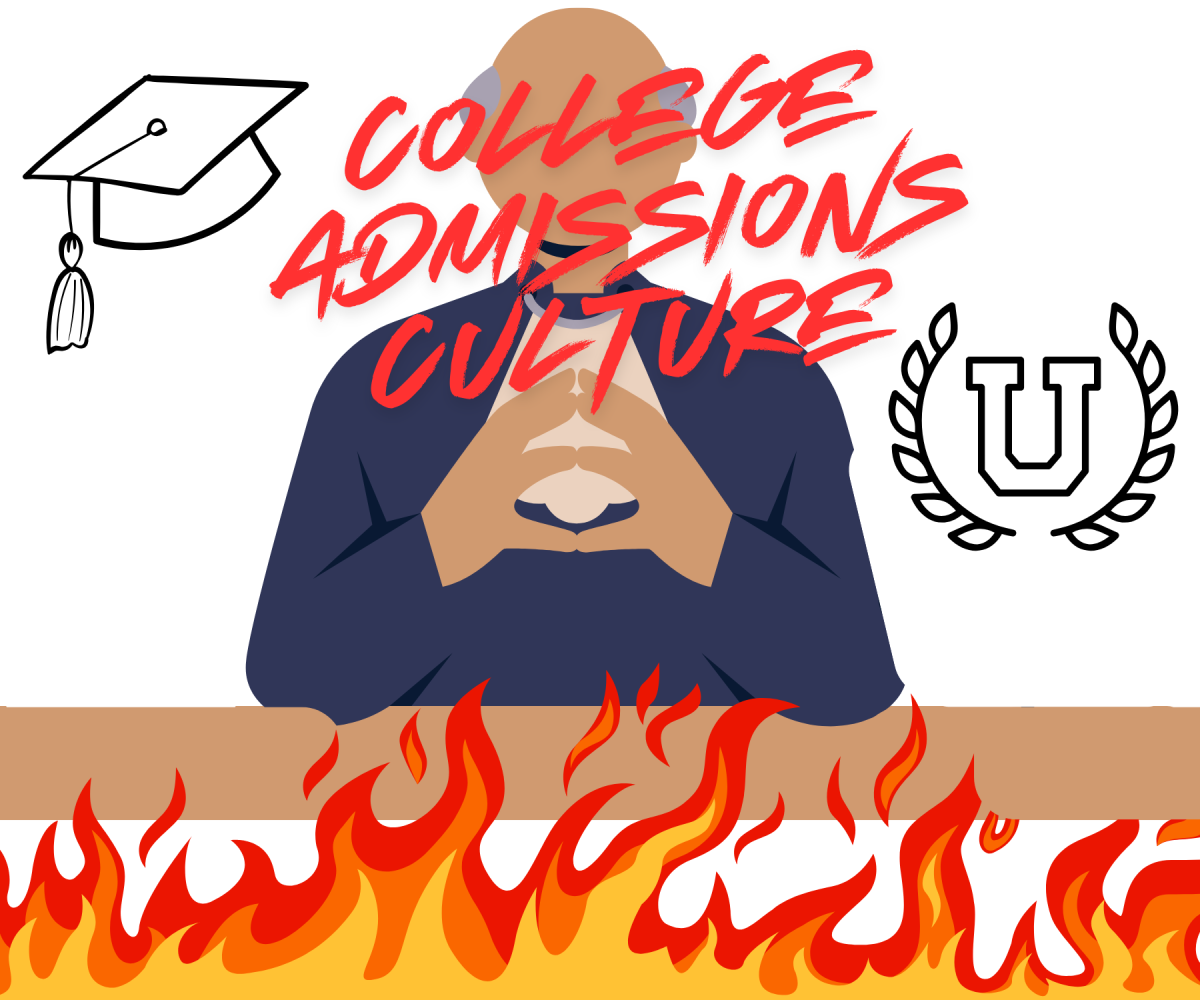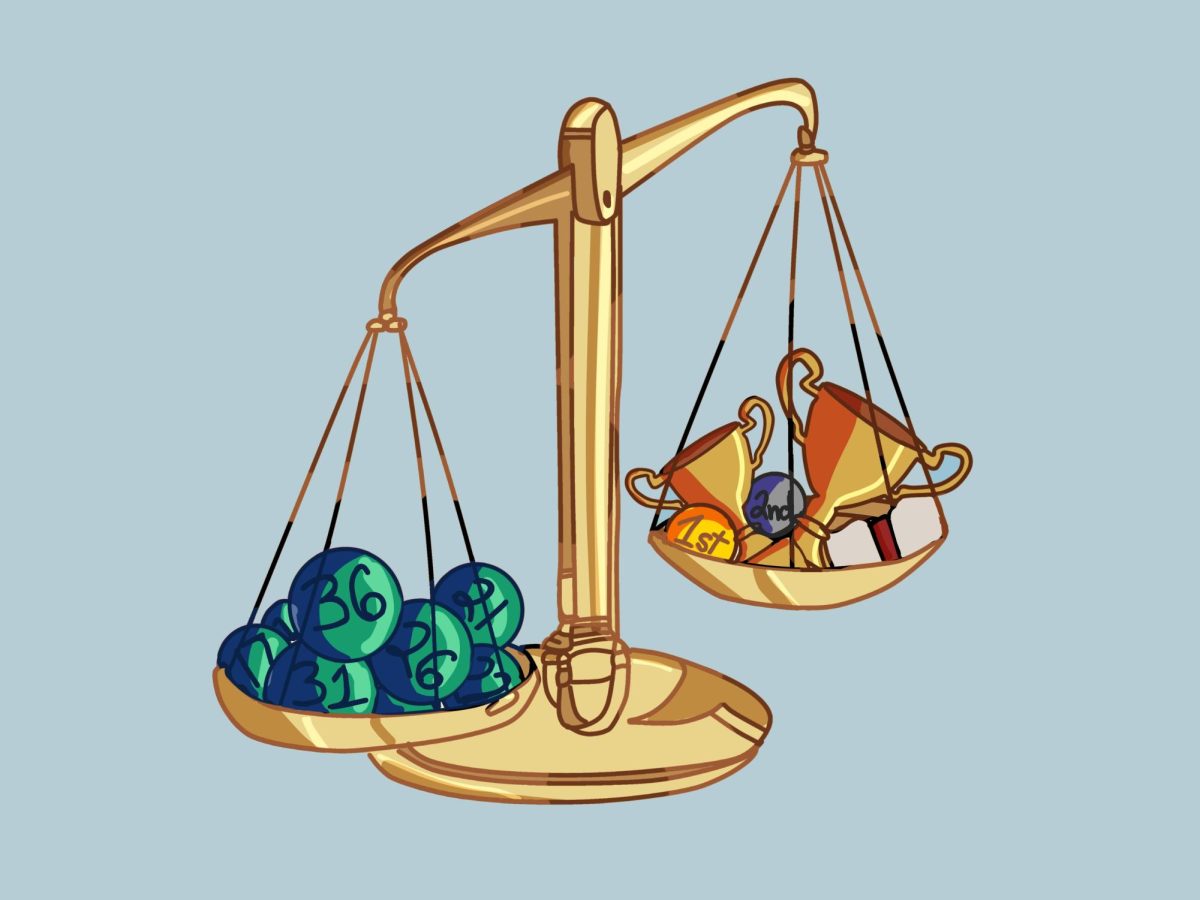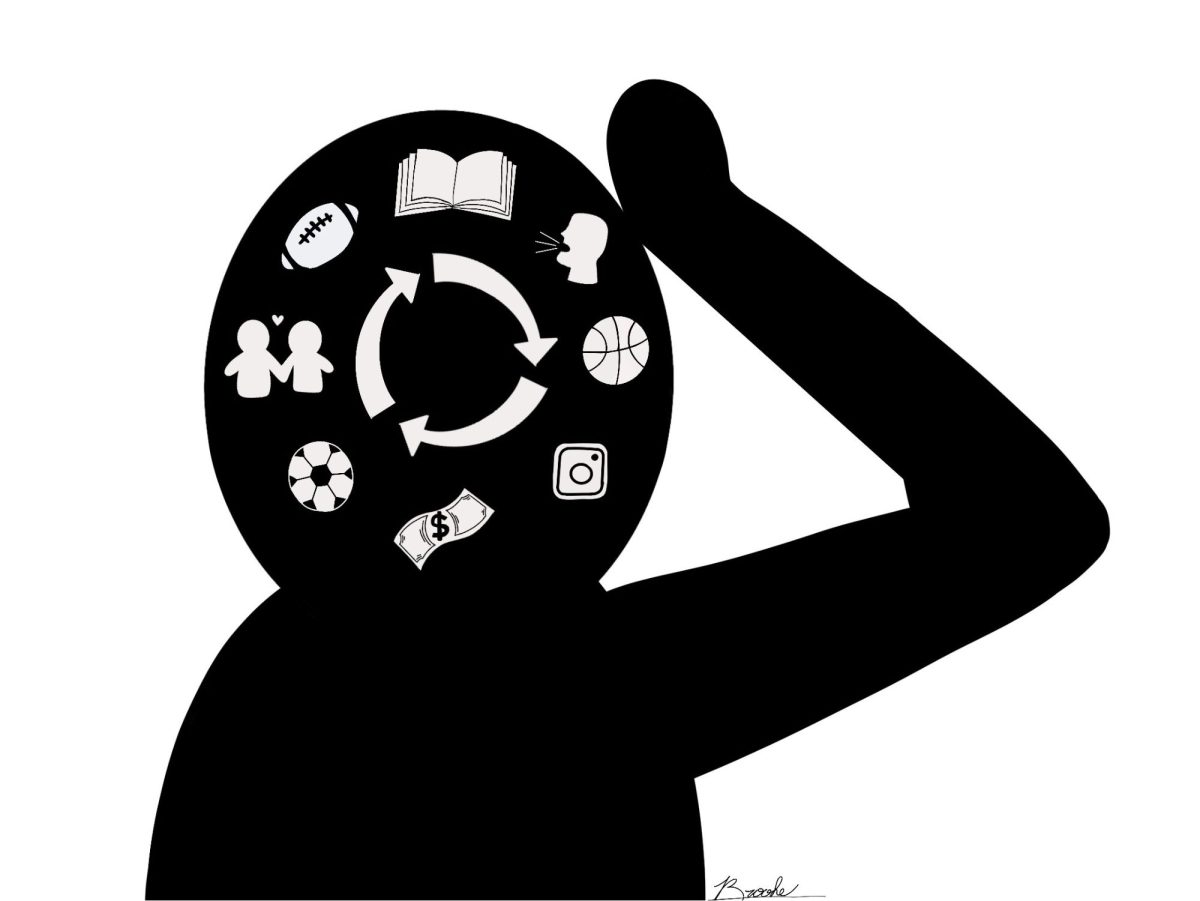To read Adrienne’s opposing viewpoint: click here
A few months ago, I sat in one of my more rigorous Advanced Placement (AP) classes, overhearing the table not too far from me discuss their GPAs. I hear a student sitting at the table tell a student standing off to the side—not quite a part of the group—say “I like to surround myself with people of the same goals. My table’s combined GPA is over 18.” The fact that this sentiment didn’t sound out of place shows how the college admissions culture has further ingrained itself into the student’s psyche as both a measure of self worth and a perpetuation of classism on an academic scale.
While college admissions in itself is benign, the hypercompetitive and judgemental nature of the culture surrounding it has created major divides between students. There is always going to be a distinction between the complacent and ambitious, but more so as they are separated constantly between AP and remedial courses. While this isn’t inherently bad, this herd mentality—as though the complacent students are a disease that could infect those surrounding them—creates for less mental diversity amongst students. Rather than learning from each other and finding a happy medium between student and individual, the gap further widens and both sides reach extremes, creating echo chambers on respective sides. I have heard people retell how they have cut off relationships with people who don’t hold the same academic achievements/status as them.
Furthermore, imagine working countless hours in and out of school to get the highest GPA possible in the hardest classes available because it feels like your future college admissions officer is waiting for just a single crack in your transcript to reject you. Now, though, this anxiety surrounds more than school. With the implementation of holistic admissions—an admissions process that judges not only the academic record, but personal and extracurricular factors—it feels like you can never escape the watchful eye of college admissions.
Devote yourself to things you love (as long as they are tailored to your major), except there is no time to find what you love (you should know by freshman year so you could establish yourself in a club, win regionals, nationals, leadership positions, and create 3 nonprofits surrounding that “passion”). Now everything you do has to be tied into your college admissions to get accepted to the very best. Before, at least you could get in if you got good grades and standardized testing scores, but now they judge you on what you do at home, outside of school, and as a person. It seeps into every facet of your life. This immense dedication to a singular activity is regarded as a spike among online college admissions forums. This culture deprives children of necessary developmental and social markers in lieu of creating “the perfect applicant”. It pigeonholes students into feeling the need to specialize themselves to be more sellable to college admission, without diversifying their experiences.
But perhaps the most concerning emerging trend among college culture is empty extracurriculars. I have met someone who admitted that they started 3 nonprofits just for “college apps.” Countless more people have received hundreds of volunteer hours with only one goal in mind: scholarships. After completing their goal or winning that scholarship, will those people care about the causes they claimed to in their applications? We’re creating disingenuous people and the system is supporting them.
The obsession with college admissions among families is negatively impacting individuals. Eage parents and students place themselves to a dehumanizing standard when the odds are stacked against them. To increase their chances of admission and scholarships, they pour money into extracurriculars, often as much money as they would have paid full tuition at the college. Among elite athlete circles, it’s common for parents to pull their child out of school and enroll them in online learning to focus on their sport. As a result, the student misses out on major milestones such as prom and graduation, but worse off, they center their entire lives around their sport. Their friends are athletes, their parents are proud of them because of their athletic prowess, and without that athletic success they don’t have those social connections. The entire student’s self worth is tied to sports and college admissions. And this goes back to my primary point about college admissions culture: everything is in moderation, but that culture has gotten out of hand.
Finally, the hypercompetitive nature of college admissions culture is a disease. You’re pinned against one another, constantly trying to outdo little Sally in Wichita that got a PSAT score 20 points higher than you and Jack in Washington who has similar SAT scores but attended a summer college preparatory camp. It never ends, and no matter how nice someone acts, their mindset is fundamentally changed to “Will I get into MIT over the kid sitting next to me?” It becomes a measure of both success and happiness.
Why are college admissions officers high priests, and why is college heaven? Why is a kid and their parent on trial, and why is the verdict a successful or unsuccessful life? Something has to change. There has to be more definitions of success among these circles. Echo chambers must be dismantled to focus on development as a person, rather than admissions grooming.







